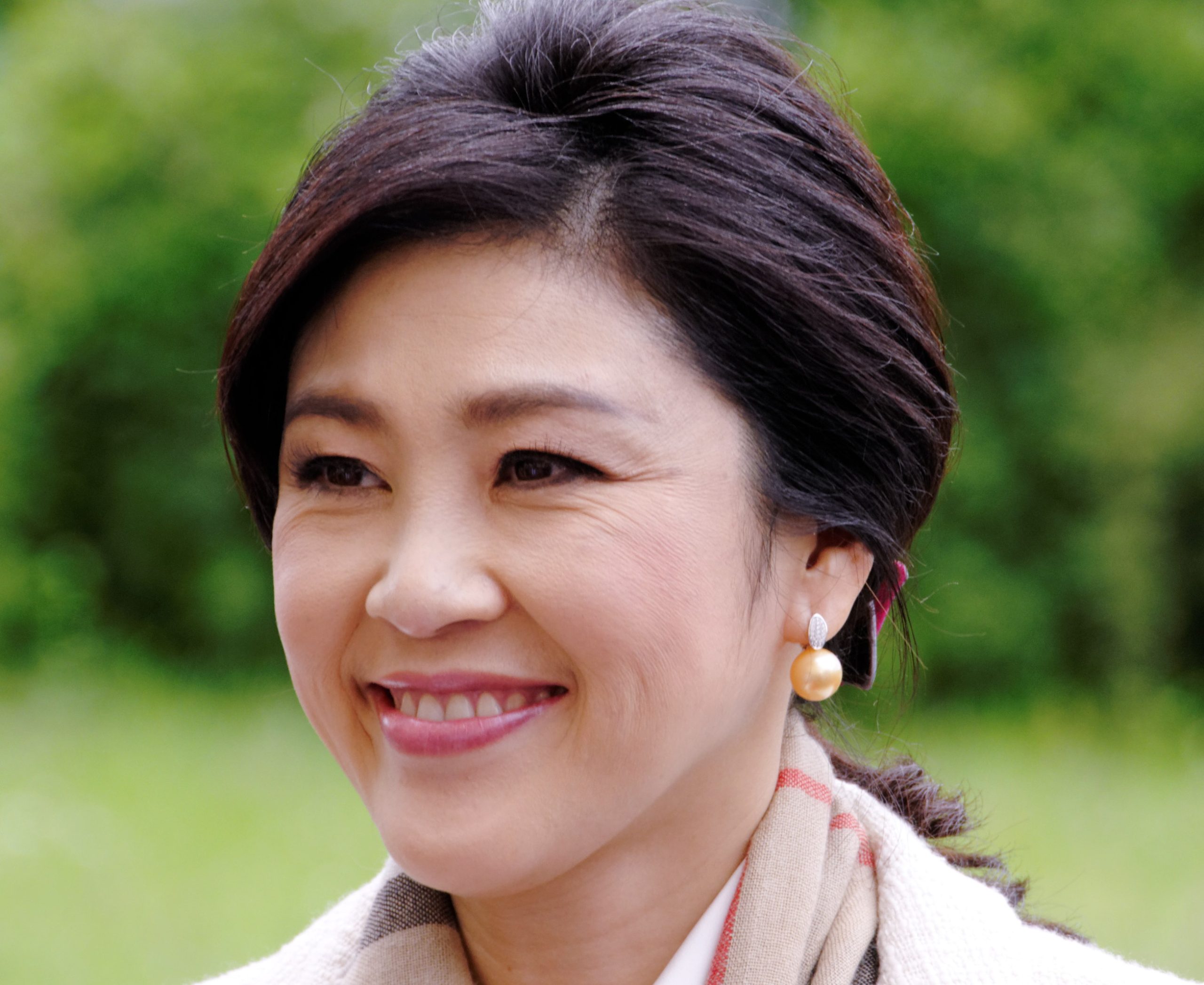
Maternally descended from 19th-century Chiang Mai royalty, Yingluck Shinawatra began her studies of business and politics at public universities on either side of the Pacific Ocean—at Chiang Mai University in Thailand and Kentucky State University in the U.S. Once back in Thailand, she became the director of operations for a Thai subsidiary of AT&T, soon moving on to a subsidiary of International Broadcasting Corporation (IBC). She left IBC as deputy CEO for a CEO position at Advanced Info Services, Thailand’s premier cellular network. She accomplished all this within a decade of receiving her Master of Public Administration.
During Thailand’s extended political crisis, Shinawatra became more involved in politics. She based her Prime Minister campaign on a reconciliation platform, after protests during the period of unrest left thousands of protestors injured and almost 100 dead. She also developed a plan to end poverty by the year 2020. To tackle poverty, she worked on reducing corporate income tax and significantly raising the minimum wage. Shinawatra also cultivated an agricultural stimulus plan and pushed for free Wifi in all public areas.
Shinawatra became the first female Thai Prime Minister in 2001, winning the election by a respectable margin. Her first year was spent battling natural disasters and floods that plunged her country into a state of emergency. Her tenure as PM ended up being short-lived, and called to a close by a military coup incited by an opposing political party. Since then, cultural and governmental shifts in Thailand have earned the country a lower rating from human rights watchdog group Freedom House. The U.S.-based organization now labels Thailand as a “not free” country.
Shinawatra still works to bring freedom and equality to the women of her native Thailand. “I support women and everyone who are fighting for democracy, for their rights, freedom, and equality,” she said. “Thailand is facing many challenges as with other countries, but furthermore, we are being deprived of freedom.” While the current junta has cancelled her Thai passports, she is rumored to split her time between the U.K. and Serbia, the latter of which granted her honorary citizenship.
